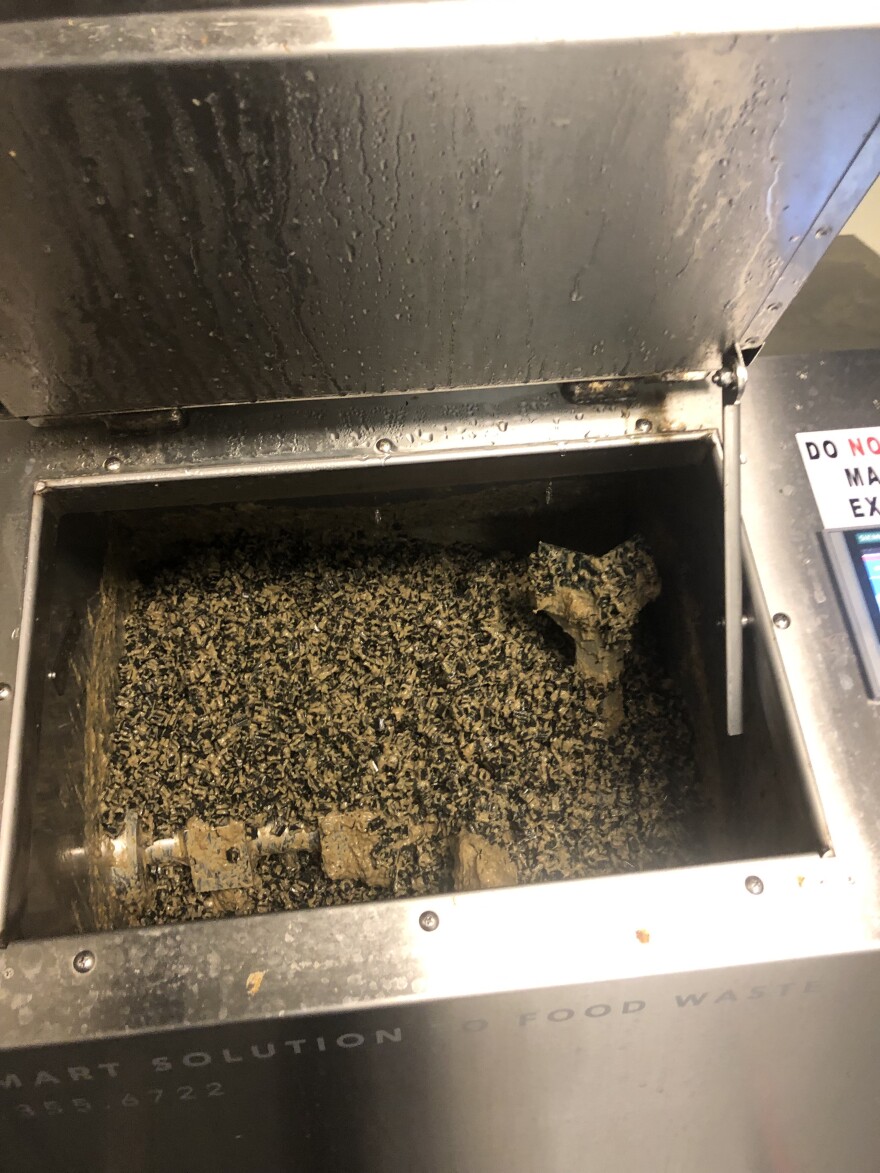Each year, approximately 133 billion pounds of food wind up in landfills across the United States.
Students at the University of South Florida St. Petersburg are tackling that problem with a unique solution: their very own biodigester.
Called the "ORCA system," the biodigester uses oxygen, water and microorganisms that flourish in cold water to decompose food scraps like vegetable peels, chicken bones, and bread.

Since installing the system in August, over 1,800 pounds of food waste from the university’s cafeteria have been diverted from a landfill.
The biodigester is one part of the university’s plan to become carbon neutral by 2050. As food decomposes in landfills, it releases carbon dioxide and methane gas - two greenhouse gases linked to global climate change.
READ MORE: See WUSF's coverage of USF St. Petersburg's sustainability initatives
According to a study conducted by the United Nations, if food waste was classified as its own country, it would be the third largest contributor to greenhouse gas emissions.
“By implementing and using the biodigester, we are actively reducing our methane emissions and therefore our contribution to climate change and global warming,” said Student Green Energy Fund (SGEF) chairwoman Emma Jacobs.
The fund is a USF System-wide, student-led effort to come up with environmental initiatives. On the USF St. Petersburg campus, it receives funding through a $1 per credit hour fee.
Instead of going into the trash, leftover food goes into the biodigester where microorganisms break down the scraps and produce a liquid that gets disposed of through pre-existing plumbing.
According to Jacobs, the system is the first of its kind in the state of Florida.
“I see this playing a big role in not only our movement towards being coming a zero-waste university, but becoming more sustainable overall,” said Jacobs.




